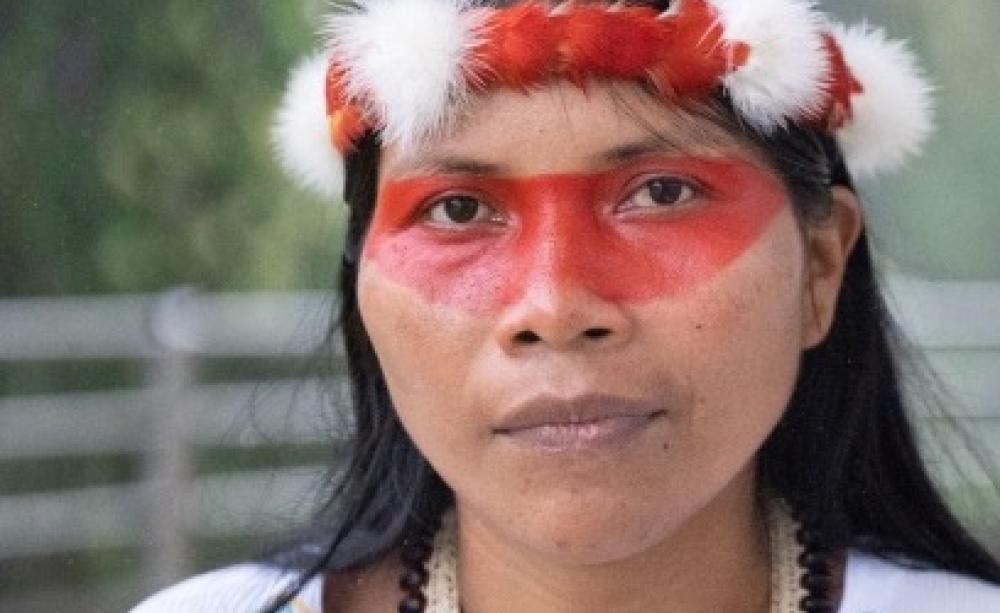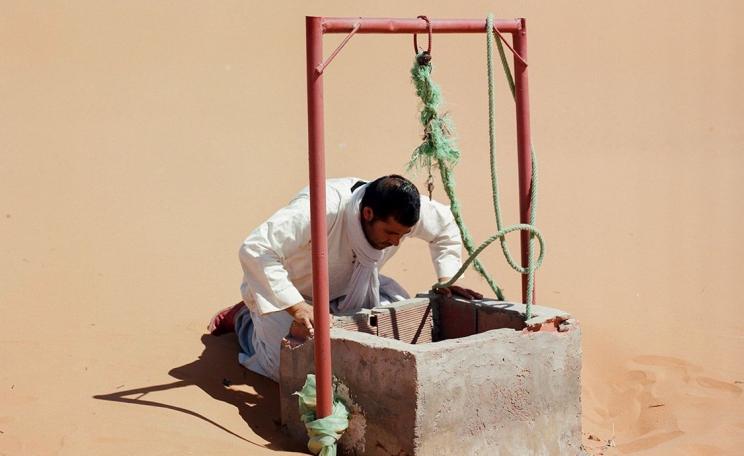Nemonte Nenquimo provides in We Will Not Be Saved a reflection on the life experiences and eco-philosophy of an actual forest dweller, rather than relying on the observations of anthropologists, missionaries or foreign adventurers.
Nenquimo’s fierce determination to assure a future for the intricate forest web of life and its human inhabitants is vividly portrayed in this powerful narrative. And this is a must-read for anybody concerned about the future of rainforests and, ultimately, our planet.
In recent years we have read much about the destruction of Amazon rainforests by logging, cattle ranching, soya farming and mining. Largely the focus has been on the Brazilian Amazon, and particularly on what was happening under the Bolsonaro regime. This important book focuses instead on Ecuador, one of the nine countries that hold a portion of the Amazon rainforest.
Rainbows
Nenquimo is a member of the Waorani tribe, who live in one of the most biodiverse areas of forest anywhere on the planet. We are introduced to a world in which people and Nature are intimately connected – through the practices of daily life and a rich tapestry of stories about hunting, fishing, gardening and gathering passed on by the elders.
The inner workings of a tribal community living in a rainforest environment have never been revealed with such eloquent intensity. People lead fulfilling lives without shopping malls, motor vehicles or government services.
Material concerns go together with profound spirituality – in daily encounters with the “wild”. Life continues largely unchanged for generation after generation. Passionate love for the forest pervades the wealth of stories told by the Waorani and other Amazonian tribes.
As Nenquimo describes: “For us stories are living beings. They breathe life into our homes, into our forests. They pulse in our blood, in our dreams. They stalk us like jaguars, clack like peccary, sail like macaws, run like fish…
"Like rainbows they bring peace. Like lightning they bring war. And they’re always changing. That’s how we know that they are alive. A story dies when no one tells it.”

Extract
We Will Not Be Saved is a truly remarkable collection of such stories, told by the people who have harvested the bounty of the forest sustainably from time immemorial.
But then come the invaders: first the missionaries, and then the loggers and the oil companies. The noise of chainsaws starts to drown out the songs of parrots and the cries of howler monkeys.
Vast areas of forest are erased in the name of progress, and drilling rigs clutter an infernal landscape polluted by oil spills.
Proud Indigenous people are diminished as they become low-paid employees of companies based in New York or London. Oil spills into rivers, the fish die, children can no longer swim, the river water can no longer be drunk. And all that in the name of progress.
In recent years, the government of Ecuador has auctioned off millions of acres of rainforest to foreign companies, who take over ever more land to extract ever more oil and minerals as the forests are destroyed. Meanwhile tribal people pray to the new Christian god for help, but he never responds.
Variety
For a while Nenquimo, as a young Waorani woman, is mesmerised by missionaries and their magic, but then she begins to understand that her culture is being annihilated. If her people lose their own stories, the forest will fall, and tribal life will be gone forever.
The Ecuadorian government has a practice of auctioning off blocks of rainforest as if they were uninhabited.
But now there’s a new spirit of resistance: the tribal people have teamed up with campaigners from Europe and the US to resist the onslaught on the forest and its people.
With the help of satellite technology and drones, they map the forest and pinpoint the great variety of uses they make of the forest environment – its medicinal plants, its fruit trees, its waterfalls, and its hunting and fishing grounds. It is a landscape alive with meaning, with many villages and their gardens scattered amongst the trees.
Struggles
Eventually, in 2019, in a major court case in Quito, Amazon Frontline, an alliance of local Indigenous groups and campaigners from the US and Europe, won a famous victory against the Ecuadorian government.
The oil companies are not given any more land to extract “the blood of the ancestors” – at least for the time being. The victory of the Waorani and their allies has changed the situation.
Tribal groups elsewhere will now map their land in similar ways to ensure it is not regarded as terra nullius – land belonging to no one – a legal concept used by colonial powers to justify the conquest of land.
This book is both a thesis on how to prevent the conquest of forest by outsiders, and a vivid portrait of a truly remarkable woman and her struggles for identity in a rapidly changing world.
Invaders
Written jointly with her American husband, Mitch Anderson, it is a beautiful document demonstrating the importance of keeping the forest standing rather than allowing it to be erased in the breathless pursuit of riches to be extracted from underneath its floor.
The title, We Will Not Be Saved, refers to the realisation that tribal people themselves need to lead the struggle against colonial conquest.
Outsiders such as international NGOs can help in the fight for ecological and cultural survival, but Indigenous people take the lead, based on their knowledge of places they have inhabited for millennia.
These forest people are rapidly acquiring the skills to deal with and legally defeat invaders such as foreign oil companies. This book is a vivid portrait of forest living and a tool for protecting it. A remarkable achievement.
This Author
Herbert Girardet is an author, filmmaker and consultant on aspects of cultural ecology. He is a trustee of the Resurgence Trust, which owns and publishes The Ecologist online.







